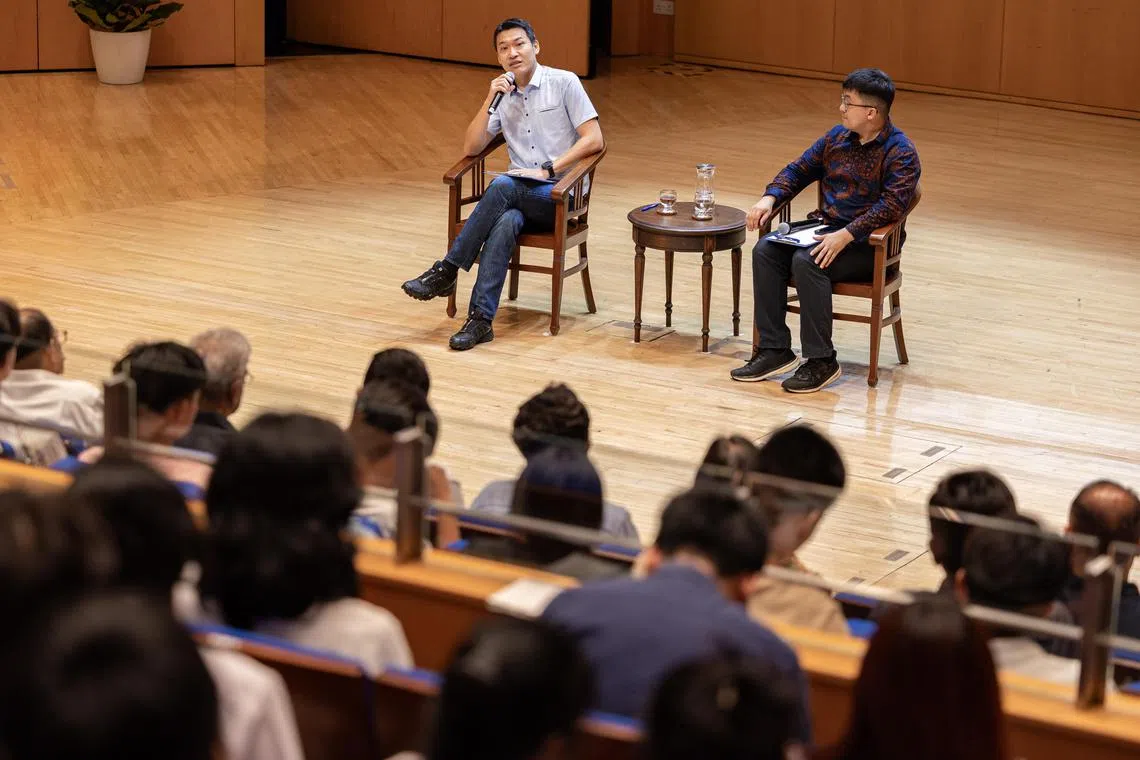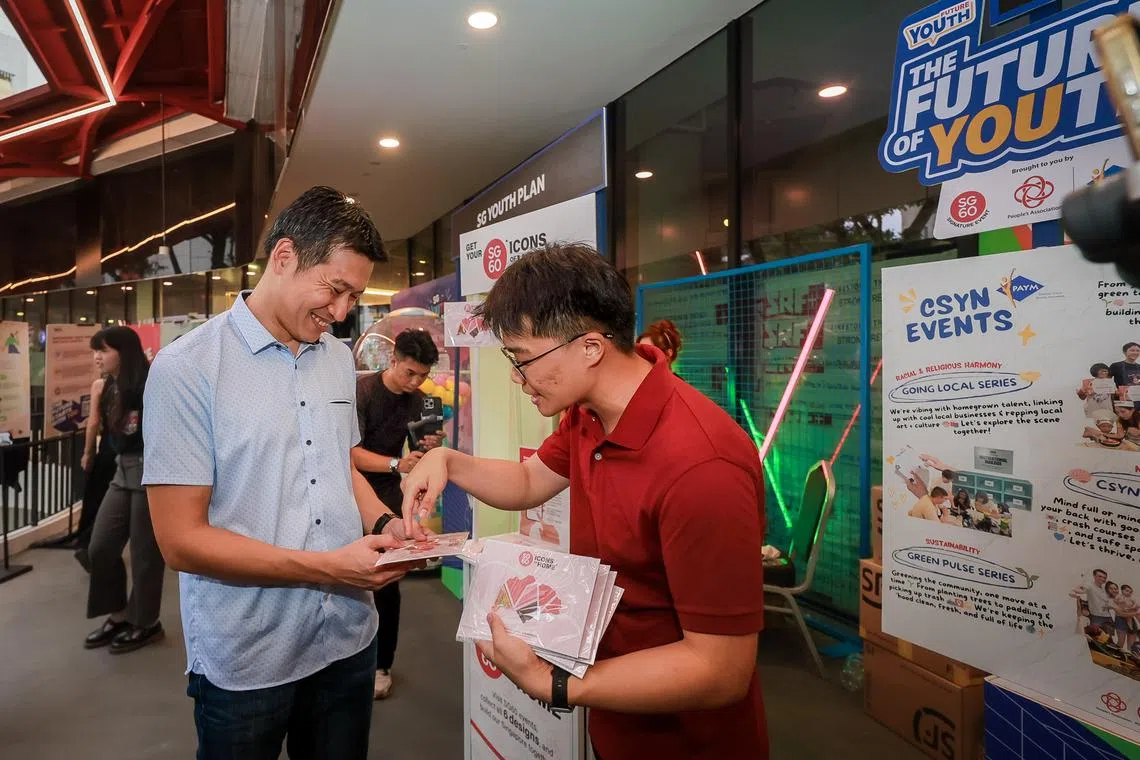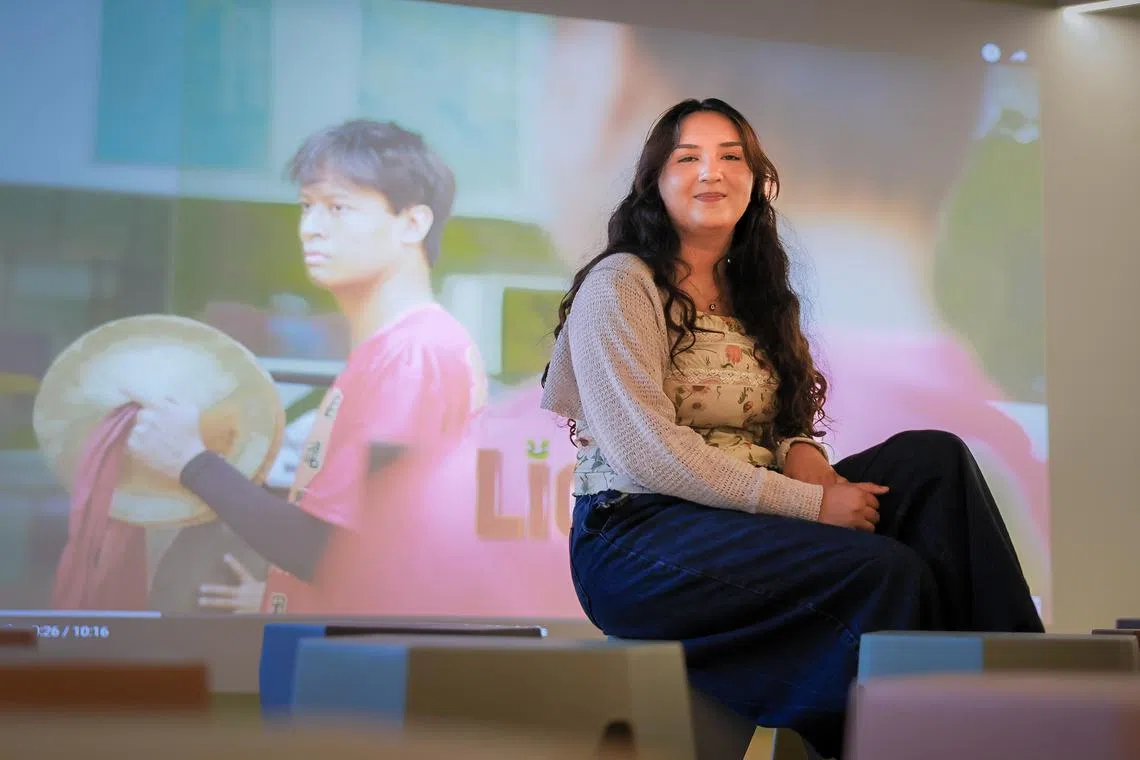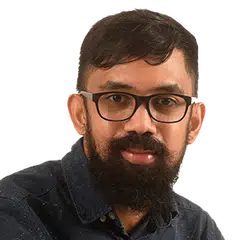Casual racism should be tackled by getting more people to understand it is not acceptable: David Neo
Sign up now: Get ST's newsletters delivered to your inbox

Acting Minister for Culture, Community and Youth David Neo (left) said it is important to let people know why casual racism is not acceptable.
ST PHOTO: BRIAN TEO
SINGAPORE – Casual racism should not be tackled with more laws, but by helping people understand it is not acceptable in Singapore.
Responding to a student during a dialogue session on July 12 at Republic Polytechnic, Acting Minister for Culture, Community and Youth David Neo said it is more important to let people know why casual racism is not acceptable.
The student had asked if casual racism should be tackled by implementing more policies in Singapore, or by a greater focus on engendering heightened sensitivity among Singaporeans.
Mr Neo said: “I personally really don’t think that the way forward is to throw in more rules, more policies, more laws to catch people. I don’t think that’s the kind of Singapore we want to live in.
“Rather it’s about building the understanding, getting more people to understand why casual racism is not okay, why it is not acceptable, and getting more people to subscribe to this idea that we need to be respectful of every single race, and we need to be careful of what we say.”
Students also raised other issues, such as the relevance of Special Assistance Plan (SAP) schools and Singapore’s Chinese-Malay-Indian-Others (CMIO) system of ethnic classification.
The dialogue session was part of the HarmonyWorks! Conference organised by racial harmony advocacy group OnePeople.sg.
Around 200 participants and facilitators attended the conference themed Hands Of Humanity, Shaping Our Future.
Most of the participants were students from post-secondary institutions, madrasahs and SAP schools.
Members from community groups like the People’s Association also attended the conference, which is supported by the Ministry of Culture, Community and Youth, the five community development councils and Mirxes, a biotechnology company.
The dialogue, which lasted for more than an hour, was held under Chatham House rules, which means that participants cannot be named in media reports.
One of the questions posed by a recent university graduate was about the CMIO model, and whether Mr Neo saw the model evolving as Singapore becomes more multicultural and has more new citizens and interracial marriages.
Mr Neo said he does not think the model is perfect, but that it was and is useful to drive integration efforts. He said that it has served Singapore well, adding that the model has to be continuously looked at.
“My own belief is that as long as we continue to hold to our fundamental and core belief that this is a place for all Singaporeans, regardless of race, language or religion, everybody is treated equally, everybody has the same fair chance, then whatever model we use to make sure we have that common space actually is secondary.
“What is primary is this fundamental belief, and I’m sure the future generations of Singaporeans will be able to evolve and come up with a model that will allow this to happen.”
When asked about the relevance of SAP schools, Mr Neo said that by and large, there is a desire for organisations and schools to be multicultural. But that there is a space for each group to also advocate for themselves, to push and strengthen the understanding of their own culture and practices.
This helps build diversity and makes Singapore strong as a nation, he said, adding that that is why there is space in Singapore for self-help groups and SAP schools.
However, he said SAP schools must not go off on their own and be involved only in the understanding of an individual mother tongue and strengthening of an individual culture, but should contribute to the common space, to add to the richness and diversity of Singapore.
Later in the day, Mr Neo attended It’s Giving Fest, an event held at *Scape to celebrate Singapore’s 60th year of independence and the aspirations of young people.
Held across July 12 and 13, the event features live concerts and performances, short films, a flea market, a cosplay segment and food trucks, as well as interactive games designed by young people.

Acting Minister for Culture, Community and Youth David Neo at It’s Giving Fest on July 12.
ST PHOTO: GAVIN FOO
The films and songs showcased include works by 53 students from various institutes of higher learning.
The students had received guidance from seven industry professionals for four months as part of the SG60 Flex Your Passion mentorship programme.
Ms Krisha Janelle Gopu, 21, joined the programme after she graduated from Singapore Polytechnic in March.
She worked as a producer on the 10-minute film Lion Heart, which is about a percussionist in a lion dance troupe who confronts self-doubt with the support of his troupe mates and those in the community.

Ms Krisha Janelle Gopu joined the SG60 Flex Your Passion mentorship programme after she graduated from Singapore Polytechnic in March.
ST PHOTO: GAVIN FOO
Ms Krisha, who will be going to the University of Stirling in Scotland in September to pursue film and media, said her mentor in the programme had provided her with support and resources.
Among other things, her mentor introduced her to a network of people in the industry, who included casting agents and experienced art development specialists.
“The experience of this mentorship programme helped me to grow more confident as a producer and gain experience in all aspects of production,” she said.



